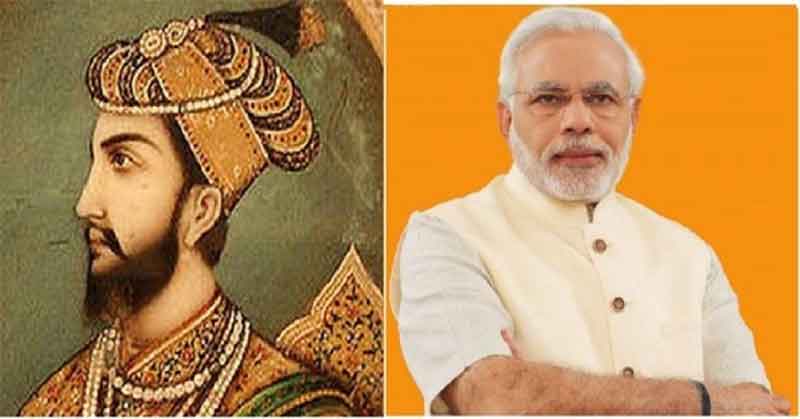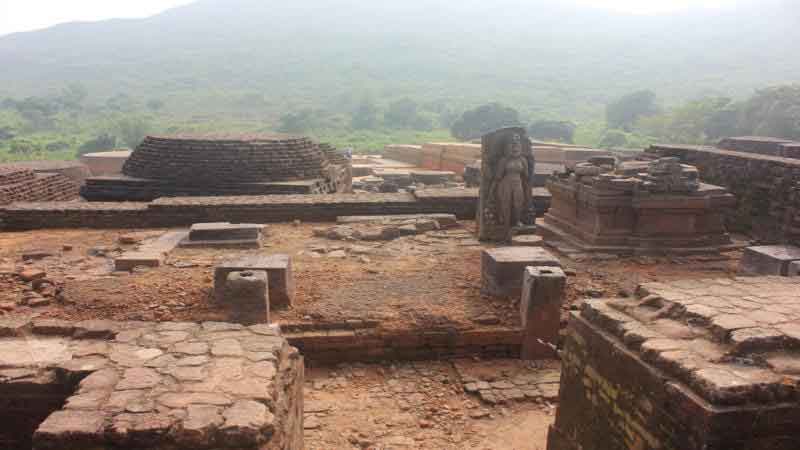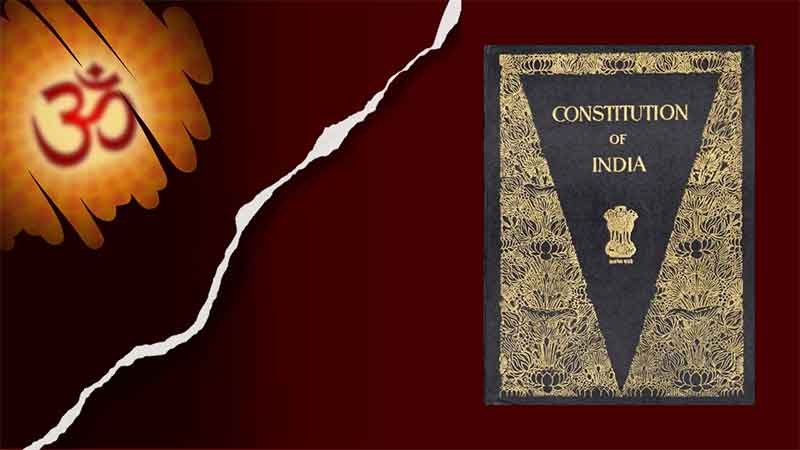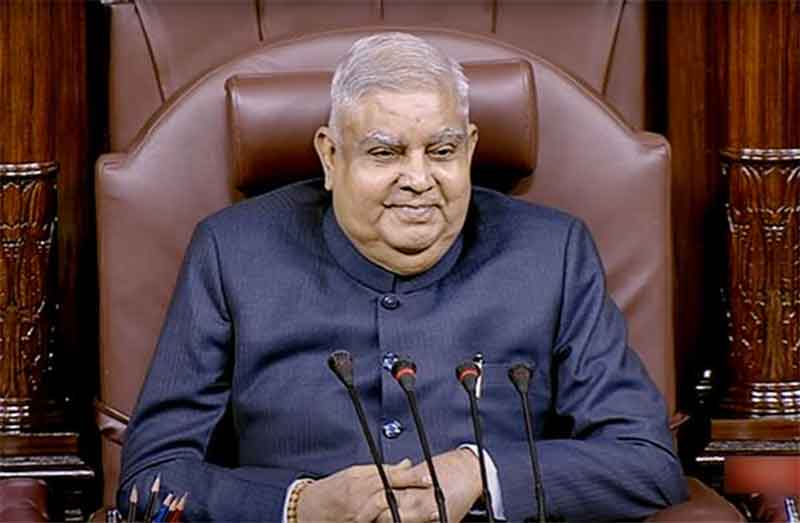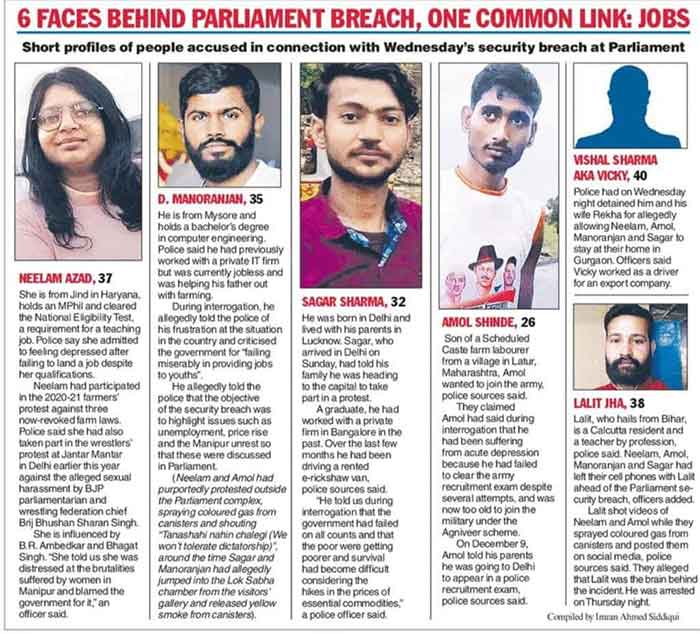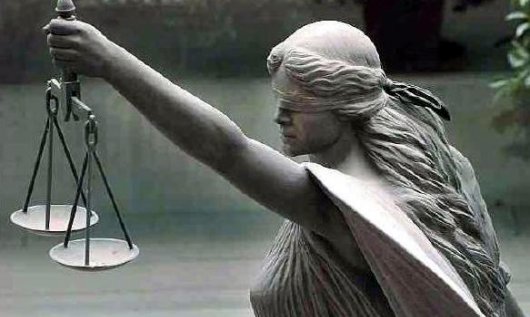
There is a common saying: `A man who keeps a dog doesn’t need to bark himself.’ But our honourable Prime Minister Narendra Modi doesn’t seem to trust the members of his manger – the journalists in some of the TV channels, who since Modi’s assumption of power had given up their professional duty as watch dogs, and opted instead to be lap dogs for the Prime Minister. Fourteen such TV anchors have been identified by Opposition parties, which are urging their followers to boycott them. Whether such a call is justified is a matter of debate. But what is interesting is that despite the groveling by these media professionals before him with their daily news presentations that publicize his image by lauding him up to the skies, Modi apparently wants to take over their role and `bark himself.’ The public speeches that he has been delivering at election rallies, and even using official functions like inauguration of projects, to garner support for candidates of his party, are shamelessly ego-centric, projecting himself as the saviour of India (which he insists on renaming as Bharat). His `barking’ at Opposition party leaders has brought down the standard of electoral political debates to the level of personal mud-slinging and street brawls. Such speeches also raise a politically ethical question. Should a Prime Minister step out from his position of a neutral and non-partisan premier, and use his official transport (airplane and road vehicles) and be accompanied by security personnel (privileges denied to his rivals in the Opposition parties) to address rallies organized by his political party asking the people to vote for his party ? Is it a level playing field ?
There is a tricky problem of reconciling loyalty to the political party to which one belongs on the one hand, with the obligation on the other hand to rise above that loyalty when one becomes a prime minister who is required to serve the citizens as a whole, irrespective of their party affiliation. How should the Prime Minister behave when his party faces an election, and when he as a party leader is asked to address election rallies ? Jawaharlal Nehru, India’s first Prime Minister set a model, when during the campaign in 1951-52 for the first general elections, he addressed rallies on behalf of his Congress party. He tried to separate his role as a government functionary from that of a spokesman of his party’s ideology. In his electoral speeches, while urging the listeners to vote for his party, he used to emphasize the ideology of secularism, rather than propagating the achievements of the government that he had been running. For instance, Nehru began his campaign in Ludhiana in Punjab by declaring “an all- out war against communalism.” At the same time, he did not want to impose his opinions on the voters, and urged them to “keep the windows of (your) mind open and let in fresh breeze from all corners of the world.”
Nehru’s speeches at election rallies were always marked by two features – (i) his offer of an open space for political debates with the Opposition; and (ii) his abhorrence of personal attacks on members of the Opposition. For instance, in one of his speeches during the 1951-52 Lok Sabha election campaign, he said ‘’I refer to other parties but only on questions of principle. I do not look at them from the point of view of personalities.” In the course of delivering a speech in Punjab, when he heard that Jaya Prakash Narayan was coming there soon to campaign for the Opposition party candidate, he addressed his audience in the following words: “I advise you to go and listen to him…I may not agree with him and certain things…But you must listen to others and try to understand all the arguments and then decide for yourselves.” (Re: Ramchandra Guha’s article `Recalling Jawaharlal Nehru’s Campaign in 1951-52’ in HINDUSTAN TIMES, May 18, 2019).
From human thinking to canine behaviour – the journey of Indian electoral politics
The above quotes from Nehru’s speeches are a far cry from what we witness and listen to, in the present electoral scenario. Nehru was trying to encourage the thinking power of the electorate to enable them to discern the ideological identities of the different political parties, and make their choice of candidates accordingly. In sharp contrast with this patient appeal to their minds to allow them to make their decisions, Prime Minister Narendra Modi and the ruling BJP politicians are appealing to their aggressive instincts, rousing divisive anti-Muslim communal hatred and casteist prejudices against Dalits and Adivasis that lay slumbered in their social history all these years. From the level of manipulating their instincts, prejudices and superstitions, the BJP leaders have descended further to the physical level by provoking their followers to lynch Muslims, accusing them of selling beef and seducing Hindu girls in `love-jihad’ – a term invented to denounce inter-faith marriages as a war waged by Muslims against Hindus in the name of love. Similarly, the Dalits are being treated as untouchables, the upper caste rural elite in BJP-ruled states under the patronage of the rulers, denying them access to drinking water sources, physically humiliating them (like urinating on their faces) whenever they dare to assert their rights. In the same way, some sections of Adivasis are being targeted for converting to Christianity, and a campaign has been launched by the BJP against the free will of people to convert from Hinduism to some other religious denomination. BJP-run state governments are bent on enacting anti-conversion laws.
Thus, along with barking, the BJP and its government have now started biting in a rabid way. One fang of their dogtooth (the goons of Vishwa Hindu Parishad, Bajrang Dal and other murderous outfits) leaps up at the throats of Muslims, Dalits, civil society activists and political opponents. The other fang consists of a row of teeth – which is tooth-brushed and presented as CBI (Central Bureau of Investigation), ED (Enforcement Directorate), and IT (Income Tax) departments. This officially sanctioned fang is unleashed by the BJP government against leaders of the Opposition parties. In fact, judging by the increasing participation of these official agencies in the persecution of Opposition politicians, the BJP-led conglomeration called NDA (National Democratic Alliance) which is ruling India under that name, should incorporate these agencies into its fold by renaming it as NDACBIEDIT.
From rational judgments to biased and ambivalent verdicts – the journey of the Indian judiciary
If we turn our attention to the judiciary, and compare its performance with that of the present BJP rulers, we find a parallel trend of descent from the past record of strict impartiality, rational mindset and defiance of external pressures that the judges demonstrated when passing verdicts. In the past, the Supreme Court was adorned with luminaries like Justices Mohammad Hidayatullah, S. R. Das, Vivian Bose, among others, who set a model of professional integrity by framing their judgments in a way that brought justice to those who approached it, and punished the guilty. In the decades that followed, their successors followed the tradition of professional conduct while deciding on cases. To mention a few such verdicts on controversial issues – the well known Keshavananda case in 1973, the Maneka Gandhi versus Union of India in 1978 and the Shah Bano case in 1985 (which was later subverted by Rajiv Gandhi to serve his narrow political interests), were path-breaking judgments.
Even at the lower level, high court judges showed courage in delivering verdicts that overturned illegal acts of the ruling powers. The most outstanding example is the historic judgment delivered by Justice Jagmohanlal Sinha of the Allahabad High Court on June 12, 1975, holding Indira Gandhi on the charge of electoral malpractices, and disqualifying her from occupying any elected post. The rest is history !
When we come to the present times, we watch with dismay the decline in standards in the behavior of judges both at the apex court and state high courts. Instead of being loyal to their professional obligation to rise above their own religious, caste or other attachments, some of them deliver judgments that are biased in favour of their personal religious inclinations. A classic example is the opinion expressed by the then Supreme Court Chief Justice J. S. Verma, who in his judgment in 1995 upheld the term `Hindutva’ and imposed it on the Indian psyche, by describing it a “way of life or a state of mind and is not to be equated with or understood as religious Hindu fundamentalism.” He delivered this judgment three years after the destruction of Babri Masjid by Hindu fundamentalists, who while destroying the mosque in 1992 also swore by the same oath of adhering to a `way of life’ and `state of mind’ that they described as Hindutva. The after effects of that event are still convulsing our society and damaging Hindu-Muslim relations. Wasn’t Justice Verma, being a veteran judge, aware of the possible consequences of his judgment ? It is exactly this judgment of his that paved the way for the Sangh Parivar to legitimize the term `Hindutva’ and help it to further the cause of `Hindu fundamentalism’ and expand its influence in society over the next two decades.
Precisely twenty four years after that judgment that legitimized `Hindutva,’ a Supreme Court bench on November 9, 2019 passed yet another judgment that bolstered up the `Hindutva’ brigade. It ordered that the entire land (where the ruins of the demolished Babri Masjid lay) must be handed over to a trust that was to be the constituted for the construction of a Ram temple. It was an egregious example of bias in favour of majoritarian Hindu religion and insult to Muslim sentiments. Incidentally, one of the members of the bench who acceded to this atrocious verdict was D. Y. Chandrachud who is the present Chief Justice of the Supreme Court.
The performances of Justice Chandrachud as the CJI, as well as that of his colleagues in the apex court amount to a mixed record of inconsistency – a few positive verdicts that have upheld some Constitutional safeguards, but along with some ambivalent decisions that deny other safeguards that keep us in a fog. Outside the portals of the Supreme court, when addressing public seminars and conferences, the CJI is quite eloquent claiming that the apex court is a people’s court, and promising to deliver justice to every individual. But once getting back to the bench that he occupies, he keeps on hemming and hawing on cases submitted by individuals who challenge the BJP government’s draconian laws and anti-people decisions. To prevaricate and postpone taking decisions, he resorts to the two privileges that he enjoys – to adjourn the hearing, or reserve the judgment for a future indefinite date.
Sometime ago, I as a layman citizen, addressed an open letter to CJI Chandrachud, seeking explanations from him for certain judgments that he had passed that were contrary to the promises that he made in public. (Re: Open Letter to Chief Justice of India, D.Y. Chandrachud in Countercurrents, November 9, 2023). I sent this letter to his e-mail address. Till now I haven’t received any response from this judge who boasts about reaching out to the common people.
Let me give two recent examples of the inconsistency in the apex court’s judgments that I have referred to earlier – one coming on the heels of the other. On November 29, a bench headed by the CJI decided to lay guidelines for the behavior of governors (one of whom, the Kerala governor Arif Mohammed Khan, was chastised by it for postponing approval of bills sent to him by the legislature). We welcomed this decision hoping that this will curb the politically partisan behavior of the governors (usually ex-BJP appointees) who are posted in non-BJP ruled states, where they carry out their party’s agenda, trying to frustrate pro-people legislations passed by these state governments by refusing to give them approval. But strangely enough, the next day on November 30, the same bench headed by the CJI ruled that Governors as chancellors of universities could appoint vice-chancellors of these institutions on their own, overruling the recommendation of nominees made by the state government. The verdict related to a case, where the Kerala government re-appointed G. Ravindran as vice-chancellor of Kannur University in 2021, which was opposed by the chancellor, governor Arif Mohammed Khan. The bench quashed the re-appointment, thus acceding to the wishes of the governor – the same governor whom it had chastised earlier for unwarranted postponement of approval of bills. Now, what does one make out of this ? Is the bench suffering from schizophrenia ?
Let me take another case. On November 28, another bench of the same Supreme Court comprising Justices B.R. Gavai and Prashant Kumar Mishra came out with a verdict which legitimized a politically partisan act carried out by the Ministry of Defence. It was hearing a PIL (Public Interest Litigation) plea that sought the quashing of a letter issued by the Controller General of Defence Accounts of the Ministry of Defence on October 9, 2023. This letter directed public servants to showcase achievements of the government. This letter was in conjunction with an earlier order by the Ministry of Defence which directed soldiers on annual leave to spend time on promoting government schemes. The plea quite justifiably challenged this order which amounted to an attempt to turn soldiers into brand ambassadors of the BJP-run government – a brazen interference in the neutral role of the army. Yet, the Supreme Court bench dismissed the PIL plea, thus paving the way for the government’s increasing tendency to politicize the armed forces in favour of the ruling party.
The role of the Supreme Court Collegium
It must be acknowledged that CJI D.Y. Chandrachud had been consistently upholding the right of the Collegium to independently recommend names of judges for appointment and promotion at both higher and lower courts, in which “no one arm of the state has a decisive role to play” (Re: THE HINDU, November 17, 2023). This has led him to repeated confrontations with the government that refuses to sanction the Collegium’s recommended names of certain individuals whom the ruling party dislikes.
But on some occasions, he appears to go to the extremes by defending nominees who do not deserve to be judges in any court. The case of Victoria Gowri is a case in point. On January 17, the Collegium recommended her as a Madras High Court judge. Soon after, some 21 lawyers wrote a letter to President Droupadi Murmu, urging her to return that recommendation. Two among them, Anna Mathew and R. Vaigai, submitted a petition to the Supreme Court, alleging that Victoria Gowri had made public utterances on the social media that amounted to “hate speech, pure and simple, against minority communities.” In response, Justice Chandrachud defended the recommendation for her appointment saying that a person should not be `disabled from being appointed to a high judicial office for views she expressed as a member of a political party..’ (Re: THE HINDU. November 17, 2023).
His defence sounds fair enough at its face value. But let us delve deeper. Do all “views” merit equal attention ? Shouldn’t we differentiate between views that oppose the ruling powers in terms that adhere to constitutional norms on the one hand, from those views that divide our society by `hate speeches’ against minorities which violate the provisions of our Constitution on the other? Should we equate views that uphold secular values and scientific inquiry (as enshrined in our Constitution) with those that propagate religious communal values and superstitious beliefs (that go against the Constitution) ?
The CJI assumes that once appointed a judge, the appointee will discard his/her personal views – political, religious or otherwise – and will not allow those past views to influence the delivery of the judgment. But does that really happen at the ground level ? As mentioned above, a large number of important verdicts by the apex court were heavily influenced by the majoritarian Hindu viewpoint of the judges – a viewpoint that they were supposed to have discarded, once they occupied the seats in the Supreme Court. The basic question is: are all lawyers or judges eligible for elevation to higher positions and deserve recommendation from the Collegium ?
Let me conclude by giving an example of one such ineligible judge – who was perhaps recommended by the Collegium to occupy the position of a judge in the Rajasthan High Court. Justice Mahesh Chandra Sharma, on the eve of his retirement from that court on May 31, 2017 came out with the amazing statement that the cow was the only animal that inhaled and exhaled oxygen, and so it had “miraculous properties of destroying germs and preventing ageing.” Can anyone trust a judge adhering to such a superstitious belief, and expect him to deliver verdicts that are based on scientific examination of facts ? To our chagrin, the judiciary both at the upper and lower levels are mostly occupied by judges of this calibre.
We are thus left in a situation where we are kept hanging between an aggressively barking ruling power and a whimpering judiciary that dares not challenge it. We can hardly expect any justice from a judiciary that is being manned by such judges as mentioned above.
Sumanta Banerjee is a political commentator and writer, is the author of In The Wake of Naxalbari’ (1980 and 2008); The Parlour and the Streets: Elite and Popular Culture in Nineteenth Century Calcutta (1989) and ‘Memoirs of Roads: Calcutta from Colonial Urbanization to Global Modernization.’ (2016).

